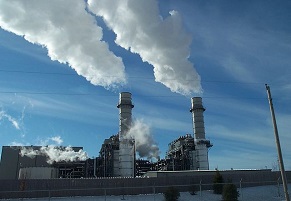How painful will the coming spike in natural gas prices be?
There is a good reason for American nuclear energy professionals to learn more about the dynamics of the natural gas market. We have been told numerous times that cheap natural gas is making our technology less and less viable in the competitive market place. Natural gas (also known as methane) is a terrific product, but it has been promoted as being capable of supplying a much larger portion of our overall energy demand. That promotional effort is putting us all at risk of a severe hangover when the low price bubble bursts.
I freely admit it; I am a contrarian who believes that the more the crowd pushes in one direction, the more beneficial it will be for me to move in the opposite direction. It is becoming more and more fashionable for casual observers of the North American energy market to make assertions about a long future of low natural gas prices that will benefit consumers and give energy intensive industries a competitive advantage in the world market.
In contrast, I am increasingly worried that there is going to be a painful spike in North American natural gas prices that will remind everyone that gas is a volatile commodity in both physical form and market price. Producers with supply that is not committed to long-term contracts will benefit enormously; consumers will suffer, independent power producers will suffer, and industrial customers will suffer, especially if they have recently made investments under an assumption that gas prices will remain low.
There are a number of factors in the multi-term differential equation that governs the balance between supply and demand in the gas market that are aligning to create an increasingly tight market.
- Multinational companies like Sasol and Shell are planning or building gas-to-liquids (GTL) plants in the United States.
- Drilling companies are scaling back drilling, especially in gas-rich areas.
- The Department of Energy continues to approve export permits for liquified natural gas (LNG).
- The Environmental Protection Agency has proposed CO2 emissions limits on new power plants that cannot be met with the best available coal burning technology.
- Five existing nuclear power plant units, with a combined total capacity of more than 4,000 MWe, have either been permanently shut down or have announced an imminent closure.
- Pipeline gas exports to Mexico have doubled in the past five years. There are projects underway that will result in another doubling in the rate of export to Mexico as our neighbor's production capacity falls.
- Canada is planning several west coast LNG export facilities.
Though increasing natural gas prices might seem to be a potential boon for nuclear energy development, there will be negative economic effects whose overall impact is unpredictable. History shows that a dramatically higher energy price reduces or eliminates energy demand growth, leads to inflationary pressures, and contributes to the risk of increased interest rates. Each of those effects puts new nuclear power plant projects at risk. The high prices may not last long; those effects tend to work to eventually bring markets back into balance.
United States citizens are often surprisingly unaware of events and market trends in other portions of the world. Even within my circle of colleagues that are working in the energy business, few realize that cheap natural gas is an almost purely North American phenomenon. European prices are approximately 2.5-3 times higher than current US prices, while Asian LNG buyers are often paying 4 or 5 times as much per unit energy as consumers in the United States.
That helps to explain why so many other countries are still planning a significant increase in their nuclear electricity production capacity. Outside of the United States, the nuclear renaissance is still moving forward, but that is not necessarily helping the nuclear professionals that like living and working inside the United States. (I am one of those people; with three young grandchildren, I am not interested in living overseas.)
All the above data points tell me that nuclear power plant owners should be much more reluctant to shut down their operating reactors, especially if they are making that decision based on an assumption that natural gas prices are going to remain low for many more years into the future. While it can sometimes require more patience than is common in corporate board rooms, a permanent decision to destroy a generating asset that meets all possible emission standards and does not burn natural gas seems to be a very short term decision. Observing those kinds of decisions makes my brain replay a refrain from a Jimmy Buffett song-"It's a permanent reminder of a temporary feeling."
The data also tell me that Southern Company and SCANA are going to be pleased that they made the long-term choice to expand their nuclear energy generating capability at just the right time to take advantage of low interest rates, low energy prices, low wage inflation, and new, passively safe nuclear power plant designs. Even though it seems to be a remote possibility today, someday in the near future their customers are going to be happy that they are served by utilities that did not follow the crowd down the seemingly easy path of increased natural gas dependence.
_______________________

Adams
Rod Adams is a nuclear advocate with extensive small nuclear plant operating experience. Adams is a former engineer officer, USS Von Steuben. He is the host and producer of The Atomic Show Podcast. Adams has been an ANS member since 2005. He writes about nuclear technology at his own blog, Atomic Insights.





